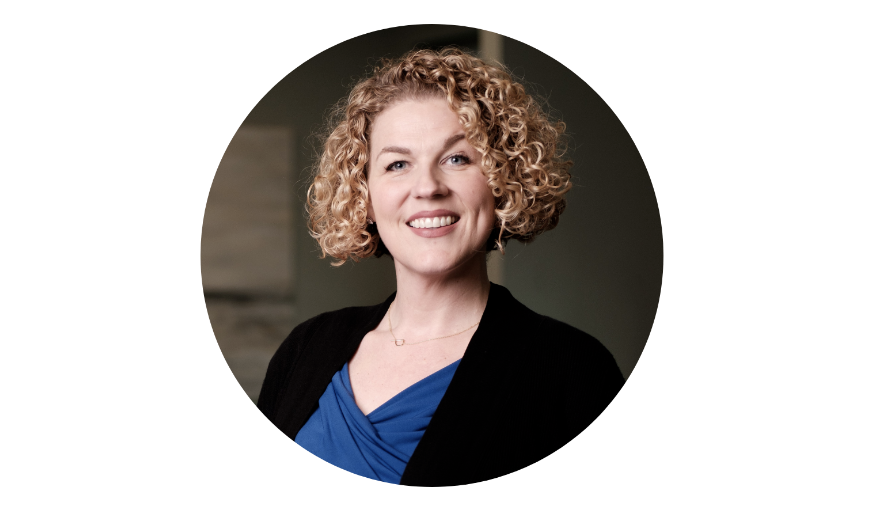By: Dr. Paige Gutheil with Signature Primary Care and Wellness in Hilliard, Ohio
In 2018, I took a leap of faith. I left the traditional healthcare system and founded a membership-based medical practice now dedicated to midlife women. Many of my patients have experienced misdiagnoses or even outright healthcare-related trauma. I wanted to change that narrative. By taking the time to truly listen, I could dig into the root of their concerns and practice medicine the way it should be—holistically and compassionately.
But in June 2022, I realized I had failed myself. In fact, if I could’ve sued myself for malpractice, I would have.
Gaslighting Yourself
I was 46, juggling a demanding career as a medical professor, running a growing practice, managing two pre-teen daughters within a two-household family. Add to that the stress of letting go of my right-hand nurse, and I was barely holding on.
I was exhausted—mentally and physically. I couldn’t think straight, my body hurt all over, I was waking up at 4 a.m. for no good reason, and my anxiety was through the roof. And yet, I diagnosed myself as “normal.”
“This is understandable,” I told myself. “Maybe this really is just life in your 40s.”
I heard myself doing what my patients complained about with other clinicians. I was gaslighting myself.
Gaslighting (verb): Manipulating someone into questioning their reality or powers of reasoning.
Rather than doing what I believe in—assessing my Whole Health and addressing the changes in my hormones, inflammation markers, blood counts and vitamin levels, I chalked it all up to stress and personal failings.
“I just need to get it together.”
I was wrong. And it’s a mistake I see so many women make every day.
Recognizing the Scripts We Live By
This experience made me realize that my patients weren’t just being gaslit by the healthcare system; they were gaslighting themselves, too.
- “I can’t sleep, but it’s probably just all the caffeine I drink.”
- “Sure, I’ve gained weight, but I snack too much.”
- “Hot flashes aren’t that bad—I’ve always run hot anyway.”
These aren’t just excuses; they’re scripts—ingrained narratives shaped by societal norms, cultural expectations, and even well-meaning healthcare advice.
Script (noun): The social role or behaviors appropriate to particular situations that an individual absorbs through cultural influence and association with others.
We’ve all absorbed scripts about health, aging, and menopause. For example:
- “It’s normal to feel older and slower in your 40s.”
- “Skinny is better.”
- “Eat less, move more.”
- “Menopause is natural, so don’t overmedicalize it.”
These scripts don’t just shape how we see ourselves—they actively hold us back. They can cause us to dismiss symptoms, settle for suboptimal health, and accept suffering as an inevitable part of aging.
Why Menopause Scripts Need Modernizing
No area of women’s health is more riddled with outdated scripts than menopause. But why?
Modern Menopause is a Relatively New Phenomenon.
In 1900, the average life expectancy for women was 49. Most didn’t live long enough to experience menopause. Today, women live decades beyond menopause, making it a significant chapter of life—not just a passing phase.
Healthcare Isn’t Keeping Up.
For decades, replacing female hormone deficiencies during menopause was standard practice. But in 2002, a flawed study suggested hormone therapy increased breast cancer risk. This led to a near-total abandonment of hormones, despite newer research debunking the study’s conclusions. Today, only 3% of physicians feel confident in their knowledge of when and how to prescribe hormone therapy.
Menopause Impacts the Whole Body.
During menopause, women face increased risks for heart disease, diabetes, dementia, osteoporosis, autoimmune disorders, urinary and sexual issues, and more. These risks aren’t just due to aging—they’re tied directly to hormonal changes.
Research Fails Women.
It wasn’t until 1993 that women were even required to be included in clinical trials funded by the National Institutes of Health. That’s less than 30 years ago! And because female hormones impact every system in the body, the complexity of studying women’s health has often been avoided altogether.
Flipping the Script
It’s time to do something revolutionary. It’s time to modernize the menopause script.
Here’s what that looks like:
From “Skinny and Young” to “Strong and Unique.”
Let’s focus on building strength, resilience, and individuality rather than chasing impossible beauty standards.
From “Eat Less, Move More” to “Fuel Smartly, Train Wisely.”
Nourish your body with nutrient-dense foods and exercise smarter—not just harder.
From “Family First” to “Self First.”
Putting yourself first isn’t selfish; it’s essential. When you thrive, everyone around you benefits.
From “Just Aging” to “Living Optimally.”
Menopause isn’t the beginning of the end. It’s an opportunity to optimize your health and create a vibrant, joyful future.
From “Fading to the Back” to “Leading With Wisdom.”
Step into your power as a leader—sharing your hard-earned wisdom, inspiring others, and redefining what it means to age.
Your Health, Your Script
The last third or more of your life doesn’t have to be marked by frailty, fatigue, or chronic disease. It can be a time of strength, health, and fulfillment. When women thrive during this transition, they bring wisdom, strength, and leadership to their families, workplaces, and communities. The stakes are high—not just for us, but for everyone around us.
But first, we need to flip the scripts that are holding us back.
Let’s aim higher:
- Stronger, not skinnier.
- Smarter, not harder.
- Self first, for our families
- Vocal, not quiet.
- Optimized, not just normal.
- Happier, healthier, and more resilient as we age.
This is the Modern Menopause Script. Let’s write it together—for ourselves and for the generations of women to come.
Take-Home Messages: Modernizing the Menopause Script
- Stop Gaslighting Yourself.
If you’re exhausted, anxious, or struggling with unexplained symptoms, don’t dismiss them as “just aging” or stress. Take your health seriously and seek holistic support. - Recognize Harmful Scripts.
Outdated beliefs like “Eat less, move more” or “It’s normal to feel this way” are holding you back. Challenge these ingrained narratives. - Menopause Deserves Attention.
Hormonal changes during menopause affect your whole body—not just your mood or period. Optimizing your health now can reduce risks of heart disease, dementia, and more. - Advocate for Holistic Care.
The healthcare system isn’t always equipped to support midlife women. Find a provider who listens, explores the root causes of your symptoms, and helps you thrive. - Flip the Script: Embrace Your Strength.
- From “Skinny and Young” to “Strong and Unique.”
- From “Eat Less, Move More” to “Fuel Smartly, Train Wisely.”
- From “Family First” to “Self First.”
- From “Just Aging” to “Living Optimally.”
- From “Fading to the Back” to “Leading With Wisdom.”
- Your Health, Your Story.
Menopause is not the end—it’s a powerful new chapter. When you thrive, you uplift yourself and everyone around you. Rewrite the script with strength, resilience, and joy.
Let’s continue the conversation!
Connect with Dr. Paige on Instagram. @drpaige.do
Ready to have a conversation with your doctor? Get the must-have labs to consider at your next visit.
The Blood Testing You Should be Asking Your Doctor For at Age 40+



